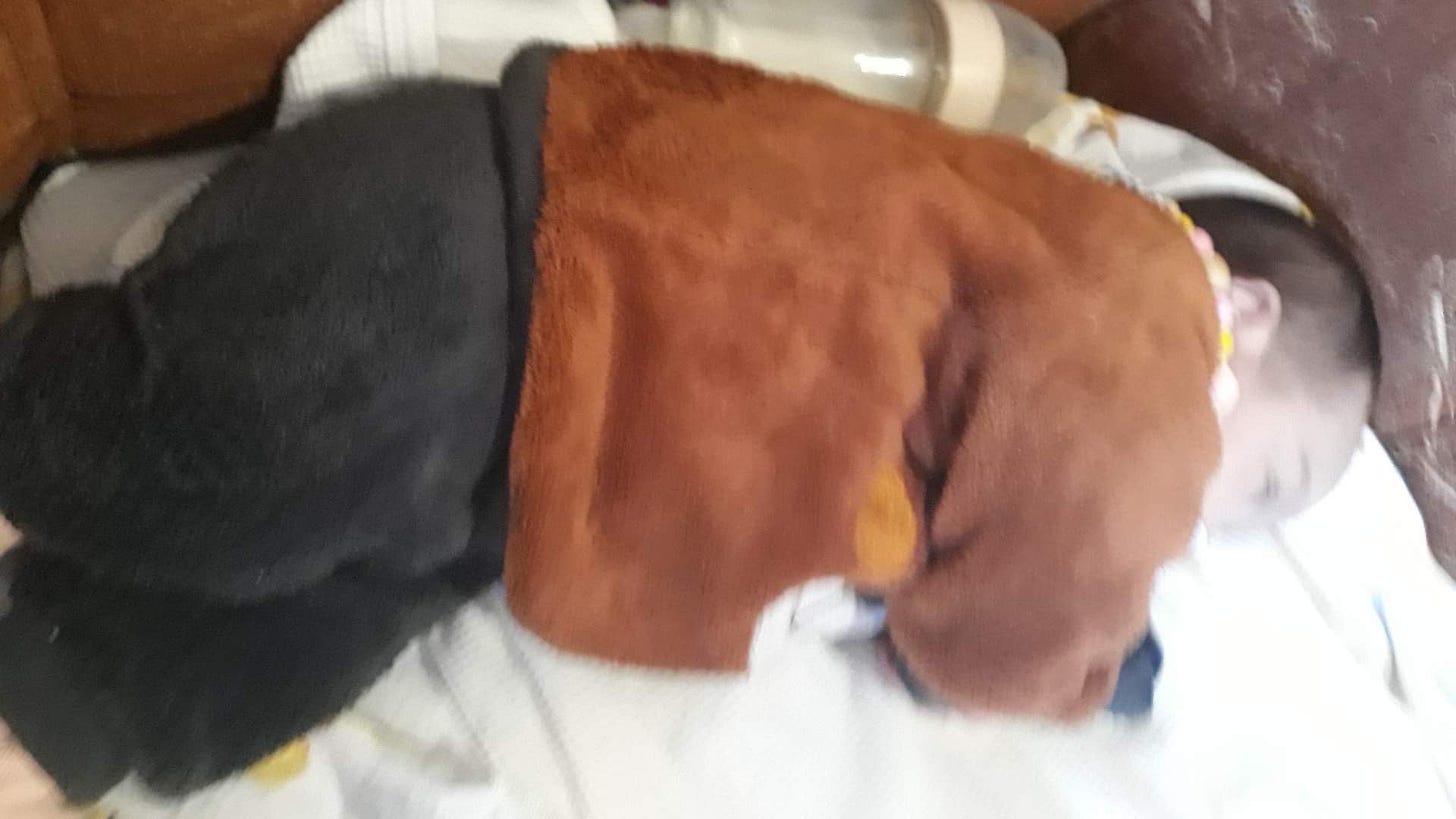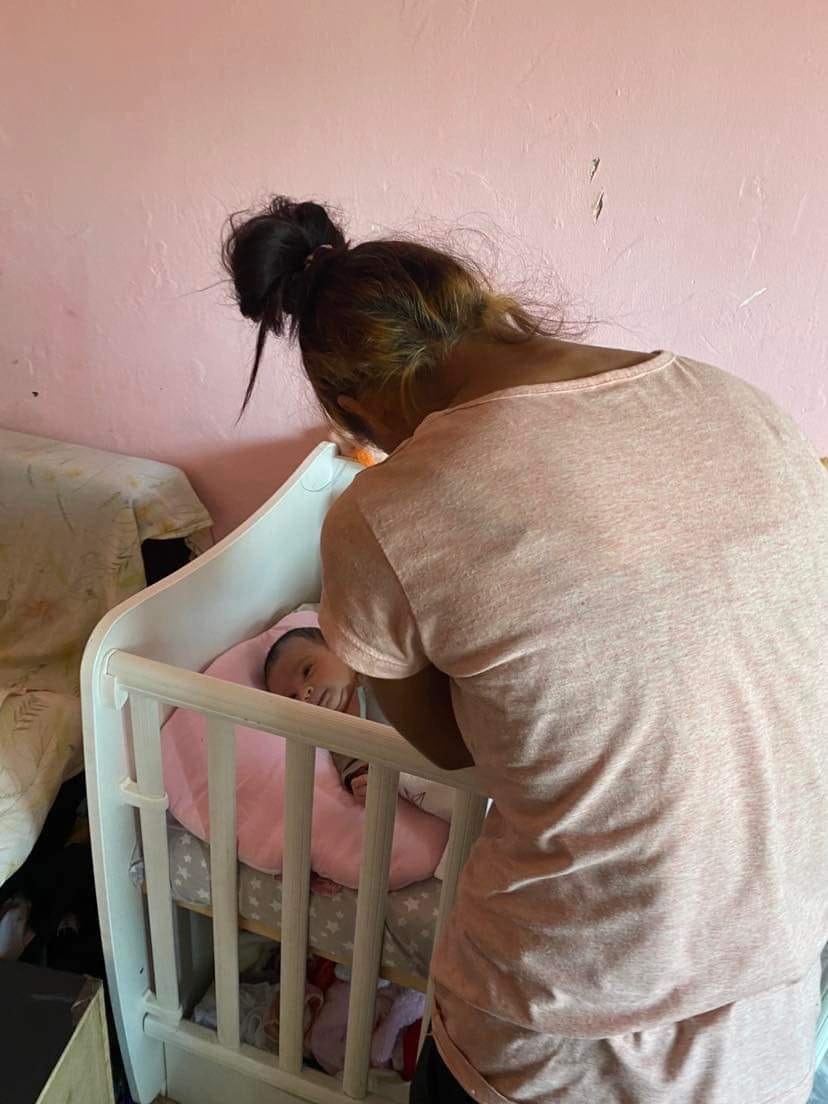The highest honor in Roma culture is a child in your arms
How Roma tribes embrace and raise their smallest members

Let’s start with an important disclaimer. When we say “the highest honor in Roma culture is a child in your arms,” we don’t mean the children of strangers. Although, if a non-Roma child happens to get lost and ends up among Romani, it will be taken care of like royalty until its parents are found. But the Romani don’t go out taking other people’s children. We’ve explored the stereotype of the Romani kidnapping white babies a little bit in the article below and will explore it more in-depth in an upcoming article. Today, we will talk about something else: how the Romani treat the children of their own tribe like royalty.
Outsiders love to criticize the Romani for what is perceived as “over-the-top” grandeur. They claim to be living in poverty and yet wear gold on every finger, dress like Disney princesses for the smallest occasion, and hire limos to pick them up from the homeless centers they live in.
All this, to the Romani, is a fleeting expression of joy in a world filled with daily struggles for survival. The gold gets pawned within days. The princess gowns are worn for the 100th time, swapped between cousins and sisters, and often don’t fit. We’ll tell you about the limos in a different article. But our point is that all the criticism about material grandeur is mainstream society’s own projection. In mainstream culture, we hold great attachments to material things. We infuse them with our identity, we elevate and cherish them, we seek from them a sense of security and, often, superiority.
For the Romani, material things are dust in the wind. Yes, they know how to pull off a princess gown. Yes, if they wear gold they wear it as if they are swimming in it like Uncle Scrooge. But it doesn’t touch their heart. Just like they adorn themselves, they let go of all of it.
One single thing comes close to the internal sense of elevation that mainstream culture seeks from material items. One thing can truly make a Romani feel not just special, but more special than the others. Chosen and blessed. And it’s not clothes, or golden jewelry, or a car in the garage.
It’s a child in their arms.
The first time we went to a gathering of the tribe with our baby daughter, she was 28 days old. On the way over, Pepi was telling Martina how that would be a great opportunity for us both to have a drink or two and relax. But Martina couldn’t imagine how that would happen. Our baby wasn’t with a sitter. She was there with us. We were going to a place that would be new to her, with a lot of people, a lot of music, and Martina was thinking the exact opposite: that she’d need to pay extra care and attention to the baby.
But she was about to discover that in Romani culture, parents are never left to fend for themselves. Because taking care of a child is not a burden but an honor.
Pepi’s niece Dancha was the first to greet us, hug us, and gently take our daughter into her arms. “Go relax,” she said. “I’ll take care of her.” Pepi handed Dancha our bag with bottles and diapers, and she went into the adjacent room. At first, Martina was anxious. After 5 minutes, she wanted to go check on the baby to make sure she was not crying or feeling abandoned. But before she could even get up she got a Facebook message from another one of Pepi’s nieces who was also in the other room with Dancha. The message contained two pictures.
Martina relaxed and decided to have a beer. 15 minutes later, she received a new message - this time from Dancha. It contained several selfies and pictures of her feeding our daughter. In those pictures, the baby was wearing other clothes - much ticker and warmer. Apparently Dancha thought it was getting chilly in the other room so she put on an extra layer of warm clothes that belonged to one of the other babies in the tribe.
Martina continued receiving pictures reporting how the baby was doing. Gradually, she stopped worrying about the baby and started worrying about Dancha. “She’s missing out on the party,” she told Pepi. We were there for the birthday of Dancha’s brother, and she was spending it in the other room babysitting. “Don’t worry,” Pepi said. That was not good enough so Martina sent a message to Dancha offering to swap places. “I’ll stay with her for a while and you come here to celebrate.” Dancha refused. “No, I want to take care of her.”
We spent about 3-4 hours there. Our daughter took two naps during this time, and both were immediately reported in a Facebook message. Dancha sat down to have a drink after we left.
This was the first of many celebrations we’ve been to together with our daughter. Every single time, it’s as if there’s an energy in the tribe that picks up the care. Sometimes one person, another time several people take turns, but always, absolutely always, the baby has been taken care of.
If the bottle with her water runs out, someone is rushing to refill it before we can even get up. People have gotten up from the table and left in the dark to go to the store to buy her favorite peach juice. If she spills something on her clothes, she’s immediately changed into other clothes, belonging to one of her many cousins. All this is done with a generous, loving, maternal energy of abundance. Anything the child needs, the child gets. And nobody wants to hear a “thank you” from the parents because this is not why it’s done.
The single reward they acknowledge, and only if the child decides to give it, is when she happens to turn to somebody and reach out to them. Then they take her into their arms, place her in their lap, and hold her until she decides to climb down. And for these precious few minutes, they hold a place of honor.
Our daughter is special to them as much as every other child in the tribe. The same way they take care of her, they take care of every single baby.
Most outsiders know that respect for the elders is a big part of Roma culture. It governs how they call each other, how they speak to each other, how they make big collective decisions. If someone is even a little bit older, they are always called “uncle” or “aunt”, bate or kako (which translates to “big brother” and “big sister.”) Calling someone older only by name is a sign of great disrespect.
But what most outsiders don’t know about Roma culture, is that love and devotion of even greater intensity flow from the elders down to the young ones.
Love for the children in the family, in the tribe, in the community is universal. But for the Romani, it is more fierce. It is categorically unconditional - not only from the parents but from every single aunt, uncle, and cousin in the entire tribe.

In June this year, our daughter had a seizure and was hospitalized. In the hospital room, just after we were admitted, Martina was waiting for Pepi to return with some essentials when she got a phone call from Dancha.
“We’re all coming, Marti,” she said.
“Coming where?”
“To the hospital,” she said. “Uncle Pepi called us and told us what happened, we’re on our way with three taxis.”
Soon, about 20 people were outside. Dancha with her husband and their two toddlers, her sister Vela with her husband and their four kids, her brother Little Pepi with his wife and three of their adult kids, their mother and Pepi’s sister Nana, Pepi’s brother Dimcho with his wife.
No visitors were allowed so they stayed under our window. We were on the second floor, so Martina opened the window wide and held our daughter so they could see her and she could see them. They started waving, making silly faces, singing songs, and soon she was giggling and howling with laughter. Vela and Dancha were wiping tears from their eyes. For a few minutes, during the seizure, we thought she had died, and when Pepi called Nana he told her exactly that: “We thought she died.” So they dropped everything, one of them pawned their phone so they could afford several taxis, and they stayed under our window to show her - not us but her - that she’s loved and cherished by an entire tribe.
It is widely known that the Romani “move in groups” and when a Roma person is admitted to a hospital, relatives arrive in the dozens. Later that day, in the early evening, Martina’s closest friend came to visit too. “I saw about 15-20 Romani crossing the street on their way out of the hospital grounds, were they Pepi’s relatives?” “No,” Martina said, “our 20 relatives were already here a few hours ago.”
Outsiders look down on this as too dramatic and unnecessary. Why show up in a crowd? Much better to give the person their space and privacy, maybe call to check in on them, discuss a visit in advance, and of course, not overwhelm them with too many people showing up at once.
It’s easy to think this way. Until, for one long minute, you think your child died, and then you’re in a hospital room with a whole clan under your window cheering her up and yelling out “We love you!” and “You’re going to be ok, princess!” Then you know it’s the exact right amount of dramatic, and very, very necessary.
We all love our children. But the Romani know something about loving a child that outsiders don’t.








